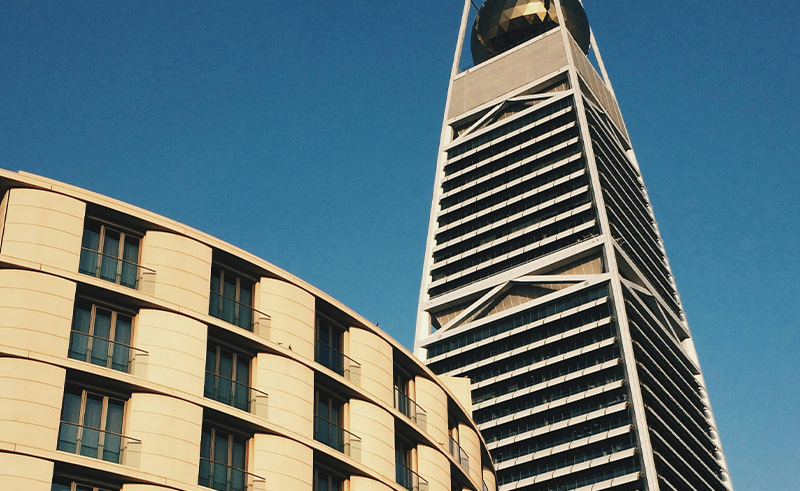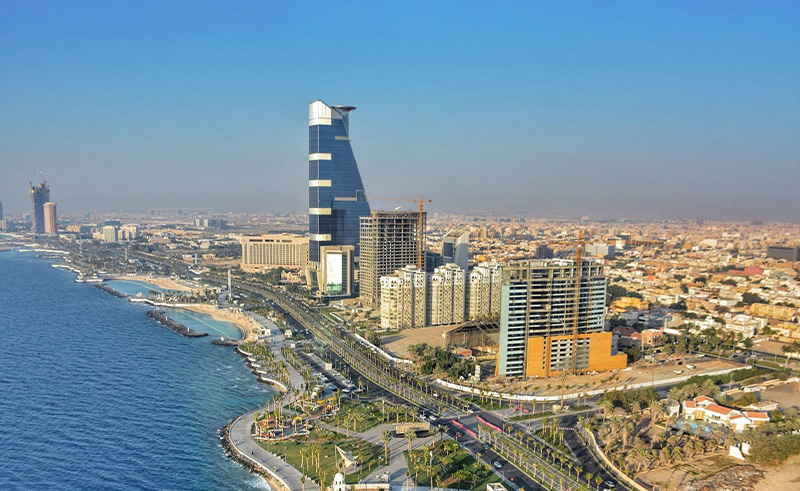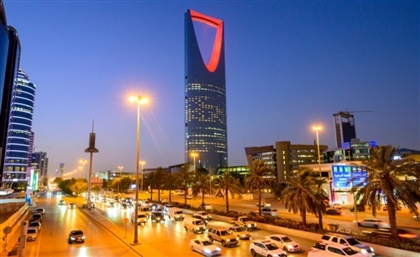Why Saudi Arabia’s Startup Ecosystem is Booming
As the largest economy in the Middle East, here is how Saudi Arabia is attracting startups and investors worldwide.

From supporting entrepreneurship to driving innovation and attracting high-skilled talent, the Kingdom of Saudi Arabia is creating a ripe environment for startups to thrive. At a time when funding is running dry in many parts of the world, Saudi Arabia has secured the most funding in the MENA region, as part of its Vision 2030 to diversify the economy and reduce its dependence on oil. In 2023, its venture capital market rose by 33% YoY to $1.38 billion, making it the most funded country in MENA, according to data by Magnitt.

“The availability of capital, specifically from semi government and government backed investors, is a very big catalyst for growth,” Eyad Albayouk, General Manager at Flat6Labs, KSA, tells StartupScene. “I think it has not only helped sustain the amount of capital available, but also grow it year over year.”
The Saudi market is also the biggest in the region. According to the International Monetary Fund (IMF), it is the largest economy in the Middle East and the 18th largest economy in the world, attracting both startups and investors to seek new opportunities in the Kingdom.

SWEEPING REFORMS
While funding is certainly important, it alone is not enough to create a vibrant ecosystem. Government reforms are also playing an increasingly important role in boosting entrepreneurship in the country.
For Mohannad Alnabulsi, an entrepreneurship expert and previous Program Manager at Misk, an organization that supports youth and entrepreneurship in Saudi Arabia, facilitating business registration is fueling the startup sector. “I think the Saudi Arabian government is one of the most advanced when it comes to digitization and digital transformation,” he says. “Everything now can be done online. You hardly have to visit government offices to get things done. Setting up a business is now easier than ever.”

From setting up new economic zones to allowing 100% foreign ownership, and fast-tracking business registration, it is supporting and simplifying business growth for local and international startups to operate in the Kingdom.
“Almost overnight laws are changing to support entrepreneurs,” says Aly Magdy, Founder of Seavo, an Egyptian marine mobility startup that is establishing its headquarters in Saudi Arabia. “The fact that I can have 100% ownership of my company, which wasn’t possible before, encourages entrepreneurs to come and operate their company here.”
HIGH COST OF OPERATIONS
Like any market, however, working in Saudi Arabia can be challenging. With the country’s high cost of operations, businesses may struggle with setting up shop in The Kingdom, especially if they’re young or newly established.

“Saudi Arabia has a very high GDP per capita, so the cost of operations mirrors that,” says Albayouk from Flat6Labs, KSA. “It’s not a cheap place to set up operations, and startups require more capital to go into businesses so they can operate sustainably. But it also means that their valuations are higher by default.”
Echoing Albayouk observations, Marwan Abu Sakha, Co-Founder and CEO Kitchefy, a startup that provides virtual kitchen services to the food and beverage industry, also finds that operating in Saudi Arabia can be expensive, especially when it comes to hiring talent. “One of the main challenges is that it's really expensive to launch,” he says. “So, getting good talent means that you need to pay really high salaries.”

This high cost of operations coupled with Saudization, a policy that requires companies to hire Saudi nationals on a quota basis, can add financial stress on startups. While the policy differs from one business to another depending on the size of the company, it still puts pressure on entrepreneurs to not only find the right talent and pay them competitive salaries, but to also meet the Saudization quota.
Without fulfilling this quota, businesses may not be able to renew their license and continue operations. “In order for a business to renew its license, it needs to meet its Saudization quota,” says Ihab Tabbara, Startup consultant and mentor in Saudi Arabia. “And if they haven’t reached that quota, they may be without a license. So, businesses have to know how many people they have to hire for Saudization, and what is the incurred cost for this additional manpower.”

THE PLACE TO BE
Despite these setbacks, Saudi Arabia’s startup ecosystem is expected to continue booming in the next few years.
With the country’s continued support for reforms, funding commitments, and diverse business sectors, it will only fuel an already expanding startup ecosystem. Its fastest-growing sectors include fintech, projected to reach $5.8 billion by 2027, according to a report by Statista, and e-commerce, expected to reach an estimated $22 billion by 2027, according to data by Research and Markets.

As part of its Vision 2030, the Kingdom has also set ambitious goals of increasing small businesses’ contribution to GDP from 20% to 35% in the next six years.
Meanwhile, the country was selected late last year to host World Expo in 2030, driving visitors and investors to the country, and making it the place to do business not only in the region, but across the world.
“The ecosystem will keep on growing,” says Tabbara. “The growth is there, the trend is there, and things are happening super-fast. My advice for startups is to catch the wave, so they can accelerate the growth of their business.”
Trending This Month
-
Jan 19, 2026






















